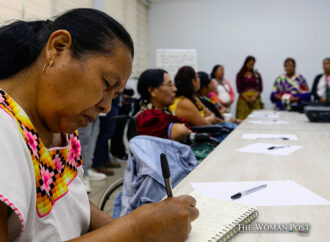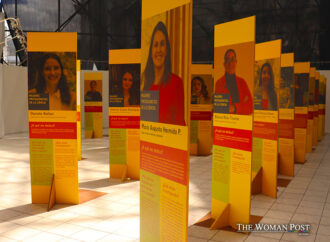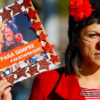Thanks to her legal triumph and courage, she regained her freedom and set an important precedent for women in her country and throughout the African continent.
In the culture of Niger, it is legally allowed to have four wives, which is also due to the practice of Islam.
Read more content like this at: thewomanpost.com
However, beyond the law you can have a "fifth wife" or "wahaya", generally she is a minor bought from her family and subjected to domestic and sexual slavery. Despite being considered a "fifth wife", they are not granted the same rights as the four wives.
Their children also suffer contempt, and mistreatment, and are denied the right to go to school.
Niger stands out for its high rate of child marriages worldwide (75%). A high percentage of girls have been sold as wahaya before reaching the age of 15.
The high rates of sexual violence put girls in exponential danger from the age of 10, which favors child marriages since families seek to marry them off thanks to the conviction that in this condition, they are less likely to be raped (even when under that agreed "marriage" become victims of physical and sexual violence).
One of the innumerable cases of wahaya is that of Hadizatou Mani.
She belongs to the Bouzou ethnic group, who are considered slaves by the Hausas ethnic group, who are generally masters.
Her mother was a slave, so Hadizatou was also born a slave, that is how her mother's owner sold her to Elhadj Souleymane, a 46-year-old man when she was only 12 years old.
He had four wives and six "wahaya", Hadizatou Mani became the seventh.
The "wahaya" live in conditions of slavery, they are forced to do heavy work for which they do not receive any payment, and they also suffer physical, verbal, and sexual violence.
Freedom for Hadizatou came in 2005 after 9 years of slavery. Thanks to the tightening of the laws against slavery, her "master of her" freed her from her to legitimize her as his wife, however, once she obtained the certificate of freedom, she fled from her.
Sometime later she married in total autonomy and had a son-she would have had another four during her term as wahayu, but only two would have survived-.
Upon finding out about her, Souleymane denounced her for bigamy, and she was arrested along with her husband and her brother in May 2007, condemning her to pay a fine of 50,000 CFA Francs -82 USD approx.- and 6 months of imprisonment and seclusion.
However, she appealed her sentence becoming the first African woman to denounce her own country for secrecy and denial of slavery and child marriage. After a process that lasted more than a year, the Court of Justice of the Economic Community of West African States (ECOWAS/ECOWAS) recognized her innocence and ordered the State of Niger to pay her compensation of 10 million CFA (16,200 USD today) for not complying with its anti-slavery legislation and for not protecting -in this case- Hadizatou.
Although slavery was outlawed in 1926 and laws were tightened in 2004, Hadizatou's case is just the tip of the iceberg, as she is currently leading a battle against slavery, the use of "ways" and child marriage, a fight that should be focused more strongly against sexual abuse and respect for women, where making parents aware of the real danger of selling their daughters is the key point, however, it is an arduous path to travel in a culture where the dishonor generated by rape or a consequent pregnancy is more feared.
Thanks to her legal triumph and courage, she regained her freedom and set an important precedent for women in her country and throughout the African continent.

























Leave a Comment
Your email address will not be published. Required fields are marked with *